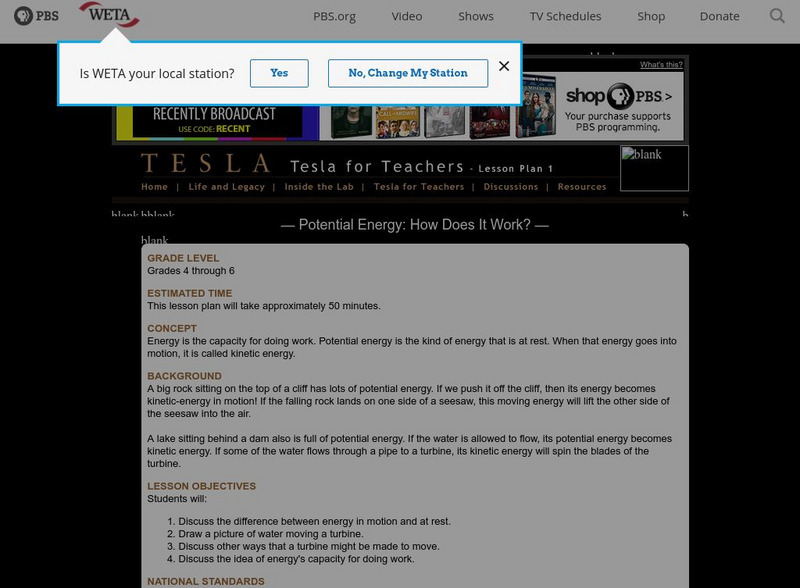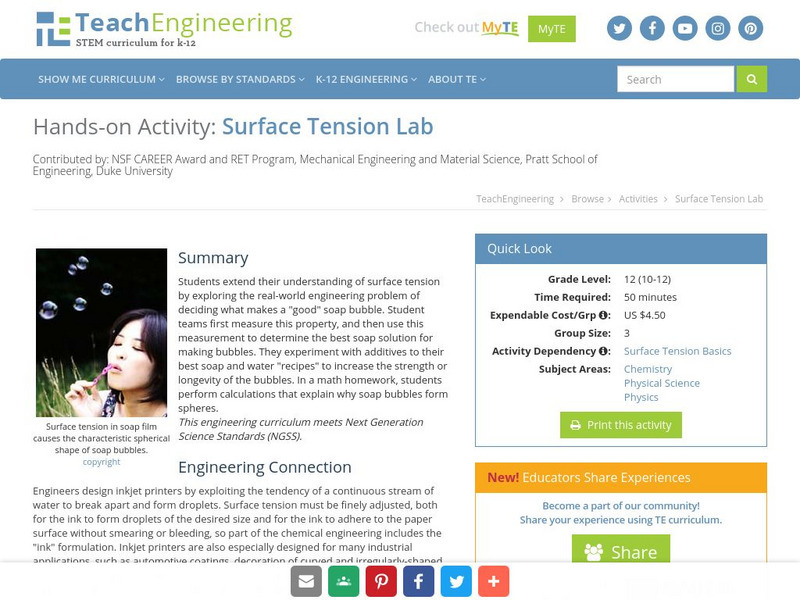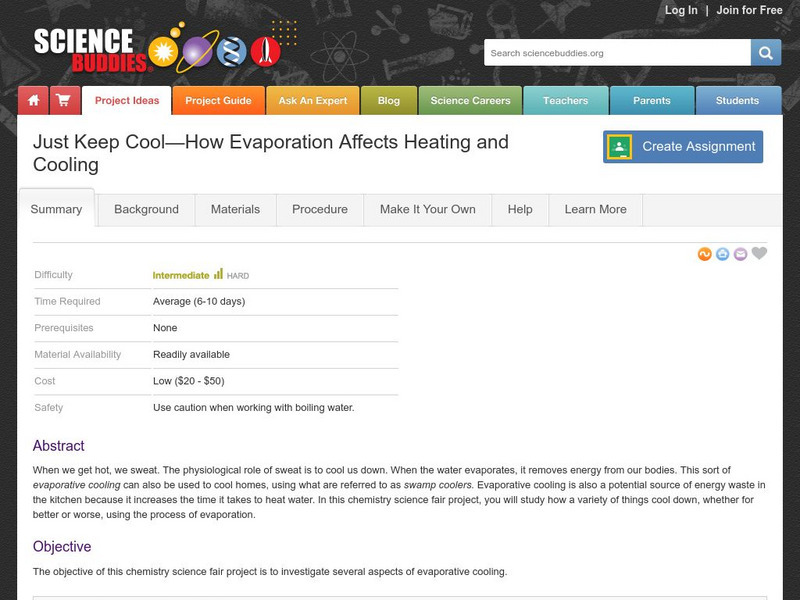Hi, what do you want to do?
Curated OER
Environmental Jobs
Students evaluate whether particular jobs have a positive or negative impact on the environment. In this career exploration activity, students complete a worksheet in pairs to determine if and why various jobs impact the environment.
Curated OER
Outdoor Survival
Students are introduced to basic outdoor survival concepts. They identify the seven basic needs for survival. Students describe the symptoms and treatment for frostbite and hypothermia. They compare and contrast the value of different...
Curated OER
Clean Coal Technology
For this clean coal worksheet, students click on the links to learn more about clean coal technology and answer short answer questions about it. Students complete 12 questions total.
Curated OER
Exploring Ultraviolet (UV) Light From the Sun
Students identify the different energy given off by the sun. In this earth science lesson, students predict where the UV beads will turn the darkest color. They explain the importance of using UV protection.
Curated OER
It's a Gas!
Students explore the conditions under which hydrates form. They use the Internet to access information and conduct experiments to examine how the greenhouse effect works.
Curated OER
Digging Up The Facts
Learners research environmental issues. In this environmental lesson, students use the Internet to research an environmental problem and list ten facts about it. Learners write a summary of facts.
Curated OER
In the Eye of the Storms
Tenth graders study the major hurricanes of the Atlantic Ocean. In this weather lesson, 10th graders read an article and answer various questions. Students discuss their findings with their classmates.
Curated OER
Downhill Discoveries
Students are involved in hands-on activities to determine how course conditions affect bobsled, luge, and downhill ski races.
Curated OER
Pollution Solution
Fourth graders examine how trees help to absorb the pollution that is emitted from automobiles. They review the process of photosynthesis and determine how forest management is important on their reservation. They think about the...
Curated OER
Circle of Pong
Students, in groups, use given materials to devise a way to deposit a ping-pong ball into a paper cup that is located in the middle of a 6-foot diameter circle, while standing outside the circle.
Curated OER
Science Test-Grade 5
In this grade 5 science test worksheet, 5th graders complete a 30 question multiple choice quiz covering a variety of grade 5 concepts.
Curated OER
Mushrooms Can Save the World
Students use mushrooms to solve problems. In this environmental lesson, students study how fungi have been used to combat environmental problems. Students design strategies that employ mushrooms to combat other environmental challenges.
Curated OER
Natural Hazards
Young scholars evaluate the hazards of naturally occurring events. After watching a video concerning safety hazards, students work in groups to discuss the safety issues involved in taking a trip to a mountainous region. ...
TeachEngineering
Teach Engineering: Falling Water
Students drop water from different heights to demonstrate the conversion of water's potential energy to kinetic energy. They see how varying the height from which water is dropped affects the splash size. They follow good experiment...
Science Buddies
Science Buddies: Put Your Water to Work: Using Hydropower to Lift a Load
Water creates a lot of energy, just look at the Grand Canyon. In this science fair project, you will demonstrate the power of water by converting the kinetic energy in moving water to mechanical energy, which will lift a small weight.
Concord Consortium
Concord Consortium: Oil and Water
Mix polar and nonpolar molecules together and observe changes in potential energy.
PBS
Pbs Teachers: Potential Energy: How Does It Work?
Describe the difference between energy in motion and at rest, and demonstrate energy's capacity for doing work. Draw a picture of water moving a turbine, and discuss other ways that a turbine might be made to move.
TeachEngineering
Teach Engineering: Energy
Through nine lessons, students are introduced to a range of energy types--electrical, light, sound and thermal-as well as the renewable energy sources of wind, hydro (water) and solar power. Subjects range from understanding that the...
TeachEngineering
Teach Engineering: Power Your House With Water
Students learn how engineers design devices that use water to generate electricity by building model water turbines and measuring the resulting current produced in a motor. Students work through the engineering design process to build...
Other
Need: Exploring Nuclear Energy [Pdf]
This downloadable article addresses all aspects of nuclear energy. Visual charts make understanding of cycles and concepts easier. Most useful for older students and educators. PDF (requires Adobe Reader).
Concord Consortium
Concord Consortium: Polar and Nonpolar Interface
Observe how molecules with hydrophilic and hydrophobic regions move in a mixture of oil and water, and pay attention to changes in potential energy over time. Move and rotate the molecules to see how they interact with their surrounding...
TeachEngineering
Teach Engineering: Surface Tension Lab
Students extend their understanding of surface tension by exploring the real-world engineering problem of deciding what makes a "good" soap bubble. Student teams first measure this property, and then use this measurement to determine the...
Science Buddies
Science Buddies: Just Keep Cool How Evaporation Affects Heating and Cooling
When we get hot, we sweat. The physiological role of sweat is to cool us down. When the water evaporates, it removes energy from our bodies. This sort of evaporative cooling can also be used to cool homes, using what are referred to as...
TeachEngineering
Teach Engineering: Dams
Through eight lessons, students are introduced to many facets of dams, including their basic components, the common types (all designed to resist strong forces), their primary benefits (electricity generation, water supply, flood...


























